WSPP Airdrop Safety Checker
WSPP (Wolf Safe Poor People) is a cryptocurrency with extreme tokenomics and numerous red flags. This tool helps assess whether a claimed airdrop is legitimate based on key indicators.
BSC Version
Contract: 0x46d5...33d36f
Market Cap: ~$953,266
Circulating Supply: 13.5 Quadrillion
Polygon Version
Contract: Not Publicly Disclosed
Market Cap: ~$51.67
24h Volume: Negligible
If you're interested in using crypto for good, consider these verified projects:
- GiveDirectly – Moved over $500M to impoverished families
- Worldcoin – Distributes tokens fairly using biometric verification
- AidCoin – Publishes quarterly reports and partners with UN agencies
When you see a headline screaming WSPP airdrop, it’s easy to get excited - free tokens sound like a win‑win. But before you copy‑paste a contract address into your wallet, you need to know who’s behind the token, how it actually works, and why many experts label it a red flag.
What is WSPP?
WSPP is the ticker for Wolf Safe Poor People, a cryptocurrency that claims to be the first token with a program to reduce world poverty. The project runs two separate contracts: one on the Binance Smart Chain (BSC) and another on the Polygon network. Both contracts share the same branding but differ in market cap, circulating supply, and community activity.
Tokenomics at a Glance
The token’s economics are startlingly extreme. On BSC, the circulating supply tops 13,504,000,000,000,000 tokens - that’s 13.5 quadrillion coins. The current price hovers around $7.04e-11 (less than one ten‑billionth of a dollar). The Polygon version is even smaller in market cap, sitting at about $51.67 with a 10.58% price drop over 24hours.
Where Does the Airdrop Claim Come From?
The community often points to a “WSPP airdrop” promise posted in the project’s Telegram channel (@robowolfproject). No reputable airdrop‑tracking site (AirdropAlert, CoinMarketCap Airdrops) lists an official distribution. The lack of a verifiable schedule, eligibility criteria, or official announcement suggests the claim is either an unofficial community giveaway or, more likely, a phishing lure.
Red Flags Identified by Experts
- Audit claim without evidence: The project says it was audited by Solidity Finance, but the audit report is not publicly accessible.
- Liquidity nightmare: 24‑hour trading volume is under $10,000 across BSC and Polygon, making it almost impossible to sell the token without huge slippage.
- Excessive taxes: Users report hidden sell taxes above 95%, effectively trapping funds.
- Charity claim without transparency: No proof of funds reaching any poverty‑relief initiatives, nor any partnership with recognized NGOs.
- Absence from major exchanges: Binance, Coinbase, and Kraken all list the token as “Not listed”.
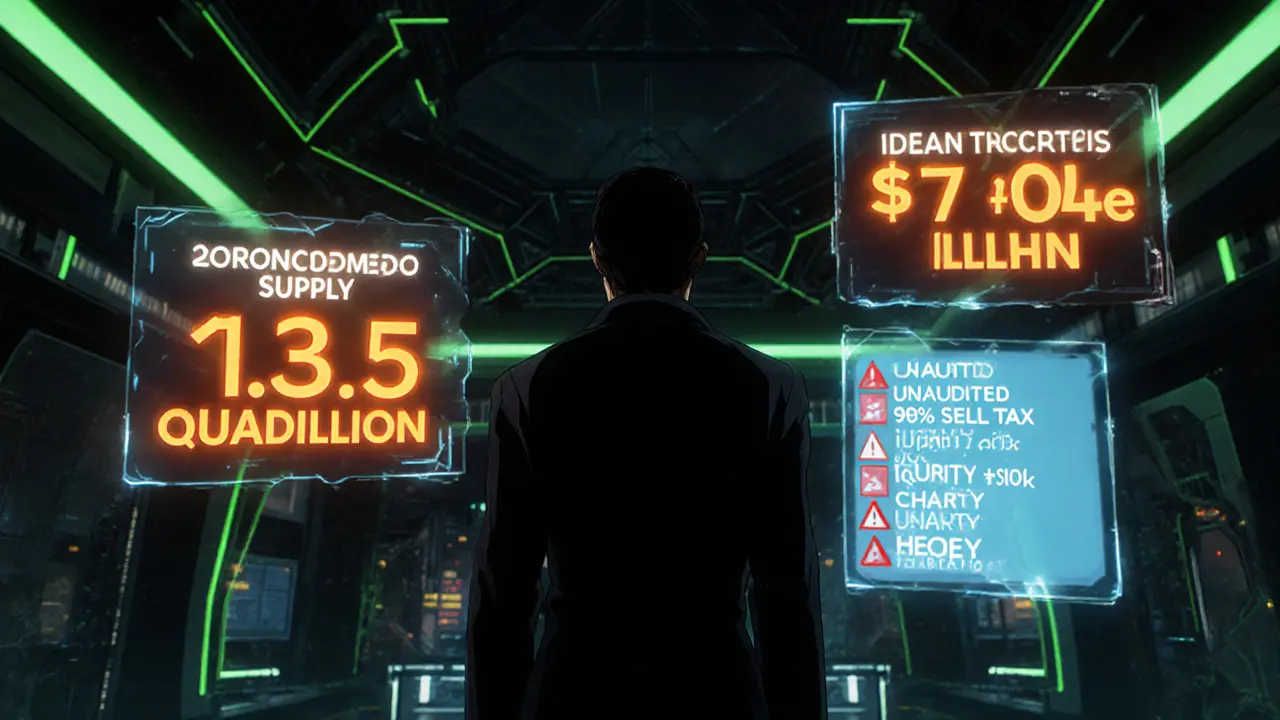
Comparing BSC and Polygon Versions
| Attribute | BSC Version | Polygon Version |
|---|---|---|
| Contract address | 0x46d5…33d36f | Not publicly disclosed |
| Market cap (Oct2025) | $953,266 | $51.67 |
| 24‑hour volume | $9,481 | Negligible (price down 10.58%) |
| Circulating supply | 13.5quadrillion | Same supply, but far lower liquidity |
| Reported audit | Solidity Finance (unverified) | None |
How to Verify a Real Airdrop
- Check official sources: the project’s website, GitHub repo, or a verified social‑media account should publish the airdrop details.
- Look for a transparent eligibility list and snapshot date - reputable airdrops never ask for private keys.
- Confirm the distribution method: a smart‑contract call from the official contract address, not a random DM.
- Cross‑reference with third‑party trackers (AirdropAlert, CoinMarketCap Airdrops).
- Test with a tiny amount first - if the token disappears or you’re hit with massive tax, walk away.
Step‑by‑Step: What Happens If You Still Want to Try
Even if you decide to explore, follow these safety steps:
- Use a fresh wallet that holds no valuable assets.
- Install a reputable non‑custodial wallet (e.g., Trust Wallet) and keep the seed phrase offline.
- Set the network to BSC or Polygon, depending on the contract you want to interact with.
- Copy the exact contract address (see the table above) and add it manually; never click unknown links.
- Set slippage tolerance to a very low value (≤0.5%) to avoid hidden tax traps.
- Send a test transaction of .000001WSPP and monitor the receipt. If the token balance drops dramatically or you see an unexpected fee, stop immediately.
Why Most Analysts Rate WSPP as a High‑Risk Asset
Financial outlets such as CoinDesk and CertiK have flagged tokens with similar profiles - ultra‑large supply, charity‑themed marketing, no transparent fund flow - as “scam‑prone”. The SEC’s 2023 Crypto Enforcement Report listed 142 charity‑themed scams totalling $287million. WSPP matches many of those red‑flag criteria: misleading impact claims, opaque audits, and a near‑zero chance of resale.
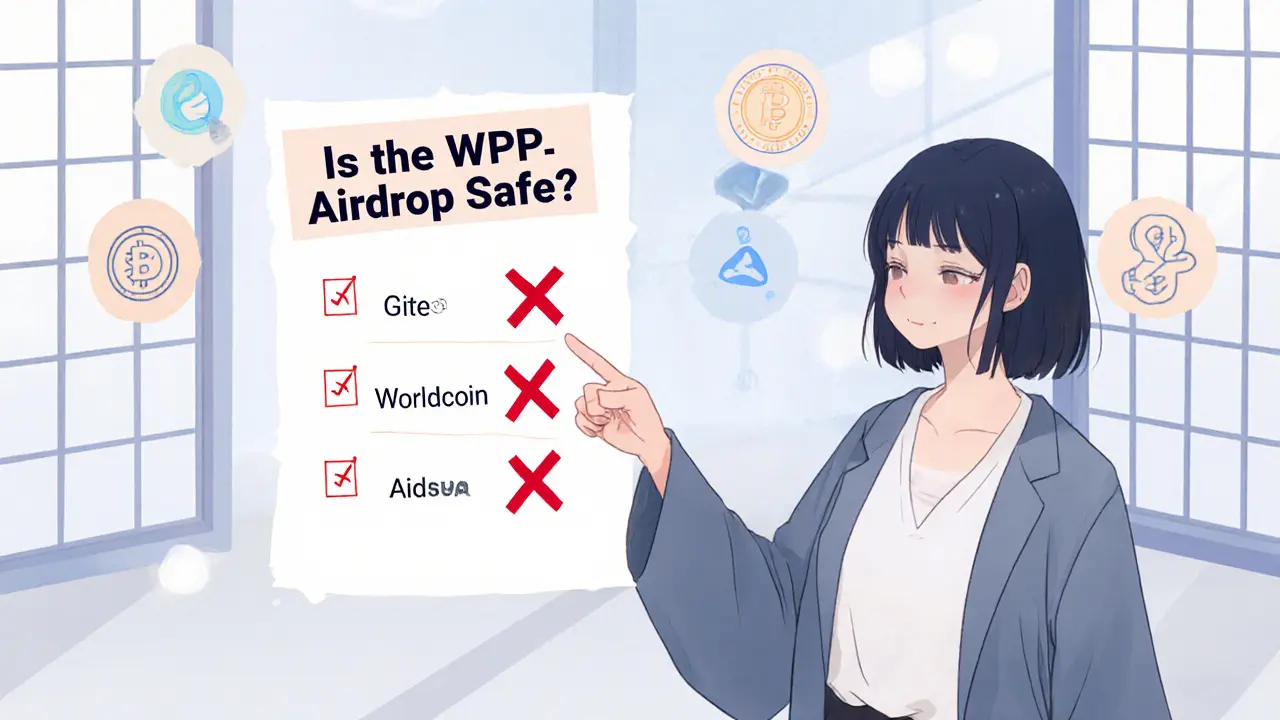
Alternatives for Investors Who Want Real Impact
If you’re attracted by the idea of using crypto for good, consider projects with documented results:
- GiveDirectly: A blockchain‑enabled platform that has moved over $500million directly to impoverished families.
- Worldcoin: Uses biometric verification to distribute tokens fairly across 20million users.
- AidCoin: Operates on Ethereum, publishes quarterly impact reports and partners with UN agencies.
These projects maintain transparent treasury wallets, undergo regular audits, and have active developer communities.
Quick Checklist: Is the WSPP Airdrop Safe?
- Official announcement on a verified website? No
- Third‑party audit publicly accessible? No
- Liquidity sufficient to sell? No
- Clear charity‑fund flow? No
- Community size and reputation? Very low
Answering “no” to most of these questions means the airdrop is likely a scam or at best a high‑risk speculative play.
Bottom Line
WSPP might sound like an altruistic crypto venture, but the data paints a different picture: minimal market confidence, opaque tokenomics, and a history of user loss. Treat any “WSPP airdrop” claim with extreme caution, verify every detail, and consider safer, impact‑driven alternatives if you truly want to support poverty‑reduction initiatives.
Frequently Asked Questions
Is there an official WSPP airdrop?
No reputable airdrop‑tracking site lists an official WSPP airdrop, and the project’s own channels have not published verifiable details. Most claims are likely phishing attempts.
Can I safely buy WSPP on a DEX?
Technically you can, but the token’s liquidity is extremely low and hidden taxes exceed 95% on sells. Most users lose their funds, so it’s not recommended.
What does the “Solidity Finance audit” mean?
The project claims an audit, but no public report is available. Without an accessible audit, the claim offers no security guarantee.
How can I verify a crypto charity’s impact?
Look for transparent treasury wallets, third‑party audits, published impact reports, and partnerships with recognized NGOs. Projects like GiveDirectly and AidCoin provide these proofs.
What steps should I take if I think I’m a victim of a WSPP scam?
Stop all transactions, revoke token approvals in your wallet, and report the incident to the platform you used (e.g., Trust Wallet). Consider filing a report with local cyber‑crime authorities and keep a record of transaction hashes.

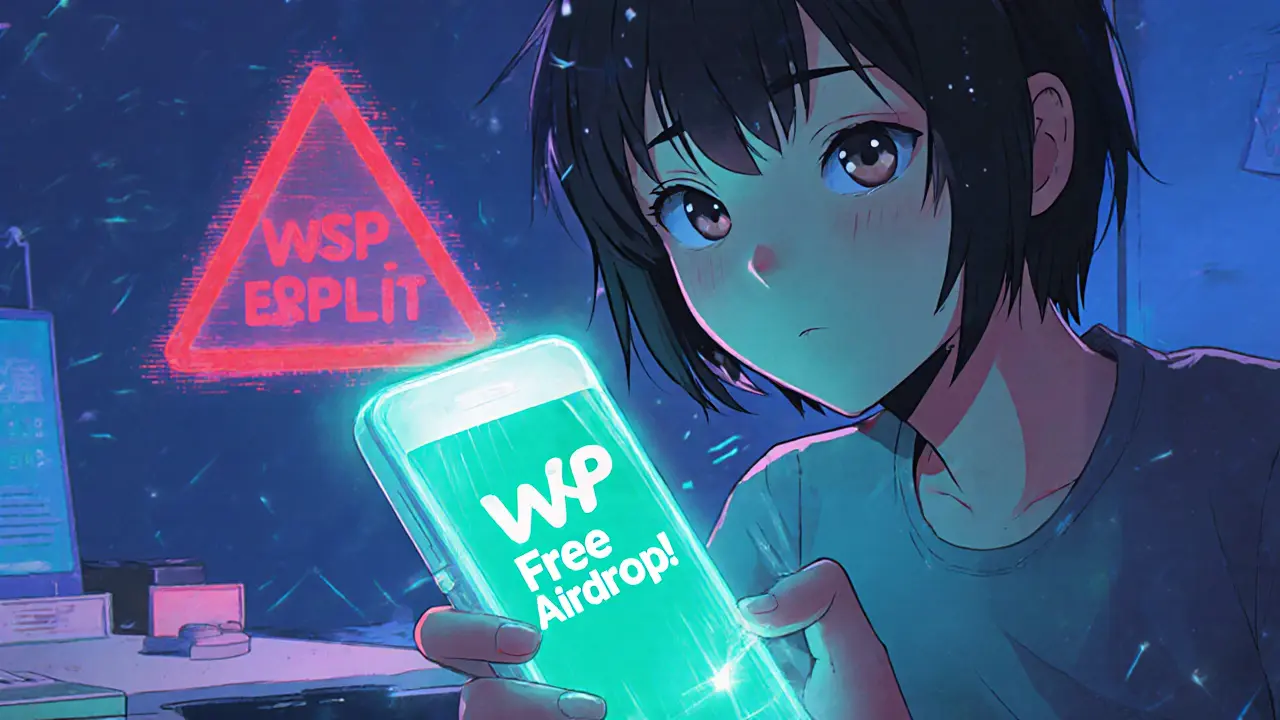



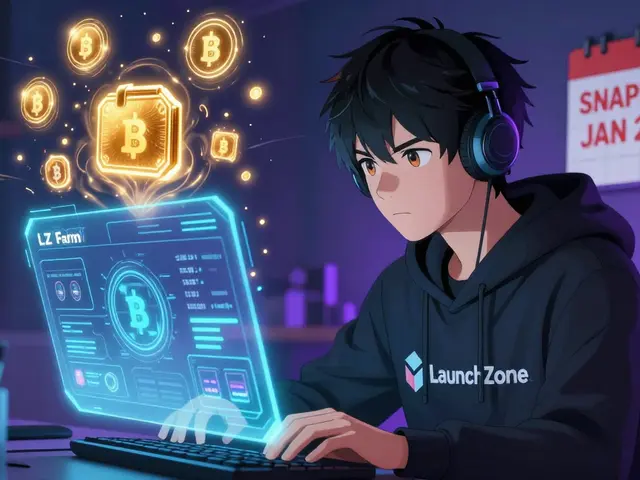
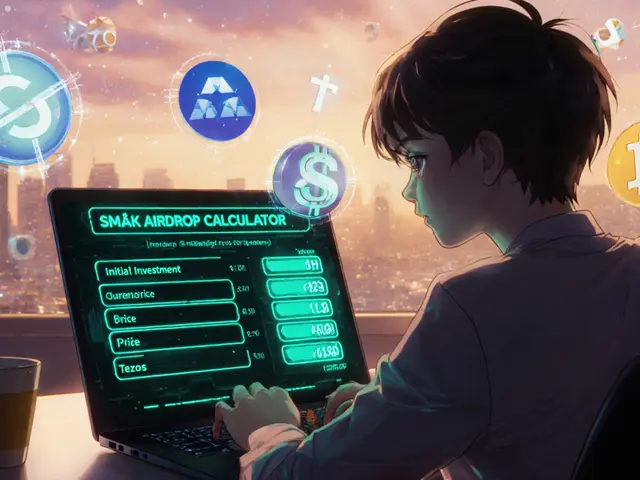
Comments
Jade Hibbert
October 10, 2025 AT 08:19 AMOh great, another "free" token that probably drains your wallet faster than a hole in a bucket.
Scott Hall
October 17, 2025 AT 08:20 AMI've seen a lot of hype around WSPP, but the numbers just don’t add up. The circulating supply is in the quadrillions and the price is basically zero, which makes any airdrop look mostly like a bait. With sub‑$10k daily volume, you can’t even slide the token without massive slippage. Bottom line: it feels like a classic pump‑and‑dump waiting to happen.
Helen Fitzgerald
October 24, 2025 AT 08:28 AMFriends, if you’re chasing that “free money” feeling, pause and look at the fundamentals. The audit claim is unverified, and the contract address on Polygon isn’t even public, which is a red flag for any savvy investor. Liquidity is practically non‑existent, meaning you could lose almost the entire amount you try to sell. Moreover, the tokenomics-13.5 quadrillion supply-make any realistic price appreciation absurd. The charity angle sounds noble, but there’s zero transparent proof of fund flow. I’d recommend steering clear and channeling your energy into proven impact projects like GiveDirectly or AidCoin.
Nina Hall
October 31, 2025 AT 07:36 AMTotally agree, Helen! 🌟 It’s tempting to jump on the hype train, but the train’s off the rails. Let’s keep each other safe and share legit alternatives instead of getting burned.
Lena Vega
November 7, 2025 AT 07:46 AMCheck the official website before trusting any airdrop claim.
Mureil Stueber
November 14, 2025 AT 07:56 AMWSPP lacks a verifiable audit and has negligible liquidity. Without transparent charity reports the project’s impact claims are dubious. Users should test with a minimal amount and watch for hidden taxes before committing any larger sum.
Emily Kondrk
November 21, 2025 AT 08:06 AMExactly, Mureil. This whole “charity” story is a front-most of the tokens vanish in a smart‑contract backdoor. The developers probably skim off the top while pretending to help the poor.
Laura Myers
November 28, 2025 AT 08:16 AMOMG, the moment I saw "WSPP airdrop" I thought I’d finally hit the jackpot-then I dug deeper and it’s like a horror movie. Empty audits, phantom liquidity, and a 95% sell tax that basically robs you blind. If you love drama, just watch your wallet get emptied on live‑stream.
Leo McCloskey
December 5, 2025 AT 08:26 AMWell, let’s be perfectly clear: the tokenomics of WSPP are an exemplar of hyper‑inflationary, liquidity‑deficient, audit‑absent, charity‑misappropriation, and tax‑ensnarement; in short, a classic rug‑pull scenario.
debby martha
December 12, 2025 AT 08:36 AMi cant believe people still fall for this, its just a scam.
Ted Lucas
December 19, 2025 AT 08:46 AMYeah, debby-don’t let the hype blind you! 😤 Always do a tiny test trade first and keep your real funds safe.
mark noopa
December 26, 2025 AT 08:56 AMWhen one contemplates the allure of a purported “free airdrop,” one is inevitably drawn into a labyrinth of psychological manipulation, where the promise of altruism masks a deeper economic engine predicated on extraction; the very architecture of WSPP, with its astronomical supply of 13.5 quadrillion tokens, embodies a mathematical absurdity that betrays any semblance of genuine value. The absence of a publicly posted audit is not merely a bureaucratic oversight but a symptom of a systemic opacity that erodes trust. Moreover, the token’s liquidity constraints-daily volume hovering in the low thousands-create a market environment where price impact becomes catastrophic for any modest holder. Hidden taxes, reportedly exceeding 95% on sell transactions, function as a tax regime designed to siphon assets from unsuspecting participants. The charity veneer, while emotionally resonant, lacks verifiable pathways, making it indistinguishable from a tokenized Ponzi scheme. One must also consider the psychological principle of “scarcity” employed by the project’s promoters, invoking urgency to compel impulsive action. In the broader crypto ecosystem, such tactics are reminiscent of past scams that leveraged social proof and community hype to legitimize fraudulent endeavors. The conflation of social good with speculative profit is a narrative device that preys on the altruistic impulses of individuals seeking impact. As scholars of behavioral finance have noted, the combination of high reward promises with low perceived risk often signals a manipulation attempt. The technical underpinnings-smart contracts with concealed functions-further exacerbate the risk, as they may include backdoors for the developers to withdraw funds arbitrarily. Consequently, the rational investor, armed with due diligence, will find the cost–benefit analysis overwhelmingly unfavorable. The prudent course of action is to disengage, preserve capital, and redirect efforts toward verifiable impact projects with transparent governance. In essence, WSPP serves as a cautionary tale about the seductive power of red‑flagged airdrops. By internalizing these lessons, the community can foster resilience against future scams. Ultimately, the pursuit of genuine charitable outcomes should never be compromised by cryptic tokenomics and opaque roadmaps.
Rama Julianto
January 2, 2026 AT 09:06 AMMark, your analysis hits the nail on the head-this is exactly why we need stricter regulatory oversight. The lack of transparency is inexcusable.
Jon Asher
January 9, 2026 AT 09:16 AMSounds like a sketchy setup, skip it.
Leynda Jeane Erwin
January 16, 2026 AT 09:26 AMDear community, I would like to respectfully advise that any participation in the WSPP airdrop be approached with the utmost caution. The absence of verifiable documentation renders the proposition highly speculative.
Brandon Salemi
January 23, 2026 AT 09:36 AMGot it, Leynda-no thanks, I’ll pass.
Siddharth Murugesan
January 30, 2026 AT 09:46 AMThe whole WSPP narrative is a pathetic excuse for duping gullible investors, and anyone still considering it is simply foolish.
Daron Stenvold
February 6, 2026 AT 09:56 AMIn the annals of crypto misadventures, the WSPP episode stands as a stark illustration of how noble intentions can be distorted into instruments of financial deception, leaving victims to grapple with the aftermath of eroded trust and depleted assets.
hrishchika Kumar
February 13, 2026 AT 10:06 AMImagine a rainbow of hope turning into a storm of empty promises-that’s the WSPP saga in a nutshell, drenched in glittery buzzwords but void of real substance.
ചഞ്ചൽ അനസൂയ
February 20, 2026 AT 10:16 AMWe often chase the mirage of free tokens, forgetting that true value is earned, not given-let’s focus on building and learning instead of hunting shortcuts.